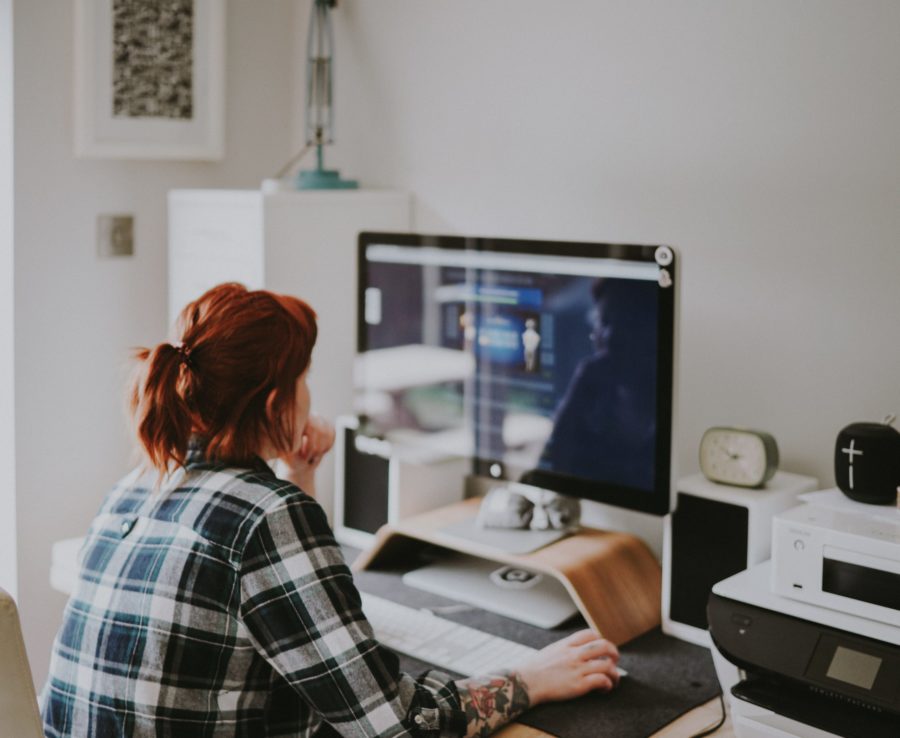
During this coronavirus pandemic, we are all using public health language that that is new to us. Recommendations to physically distance, avoiding touching the face, and wear masks in public are all intended to “flatten the curve” of the pandemic so that hospitals can handle the number of patients seeking care, and are not overwhelmed. Of course, the fear caused by the virus, combined with isolation, financial worries, and the stress of full-time child care, are causing problems of their own. Mental health experts are already seeing increased symptoms of distress, such as depression, anxiety, weight fluctuations and insomnia, in their current patients, and calls to mental health hotlines are up.
Mental health problems can be lessened or even prevented, however, just like other illnesses. Experts are calling for awareness of our collective ability to “flatten the curve” of emotional distress, just as we are attempting with COVID-19 cases, in order to prevent severe, widespread mental health problems in the next few years. Illness prevention has two steps: decrease risks for the illness, and increase personal strengths and resilience. Here are some ways to do both, in order to prevent the legitimate worry we’re experiencing from becoming full-fledged anxiety or depression.
Daily Wellness Tips
Being intentional about filling up our emotional reserves is a good idea, even if we feel fine. Then when stressors occur, we aren’t already operating on an “empty tank”.
- Stick with routines–especially in the morning.
- Stay grounded in the facts–pay attention to public health professionals over other voices.
- Take control of the things you do have control over. Try to focus on the decisions you are able to make.
- Connect with nature. Take a walk or just sit outside and notice which spring plants are growing.
- Move your body a bit each day. Take advantage of natural endorphins!
Combat Isolation
Remember–we all have mental health to take care of, whether we have a mental illness or not.Connecting with others keeps us grounded and healthy.
- If you tend to self-isolate, actively fight that pull by reaching out.
- Give yourself credit and props for doing so in any way, big or small.
- Mix it up: if you normally text, try a phone call. If you normally call, video chat may increase the good feelings connection provides. Haven’t sent a card or letter in years? Maybe you would enjoy the process of hand-writing something.
- Think about adding to your “virtual neighborhoods.” Work, church, family, and personal interests provide opportunities to feel a part of a community through social media or other digital means.
Self Care & Professional Help
When people are physically distanced, they aren’t as likely to reach out for mental health supports. Take the first step if you are struggling.
- Avoid triggers that escalate your own anxiety.
- Be a student of yourself. How do you tick and tend to cope? We all have unique ways that we feel the most centered or grounded. Practice those things in spades, and work them into your schedule as non-negotiable.
- If you stopped counseling when coronavirus started to spread, reconnect for an appointment. Most professionals are offering sessions via phone or a video platform.
- If you haven’t seen a therapist before, it’s a great time to start from the comfort of your own home. Some insurance plans are even waiving co-pays right now.
- Allow yourself to embrace hope, or at least open the door for it. You may plan for the best possible future, even though things are hard right now.
Flattening the mental distress curve is something we can do if each of us does a little bit to fill up our own tanks each day, and also looks out for one another. For help finding a therapist, Mental Health America of Lancaster County is a great resource, and the Lebanon County MH/ID/EI Program offers services as well.